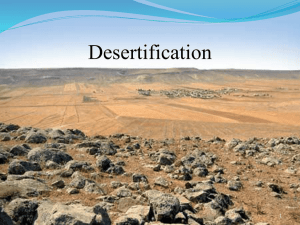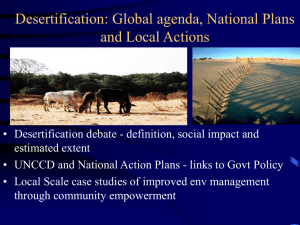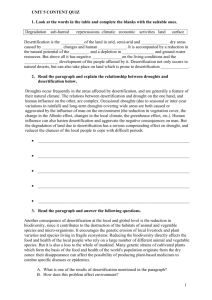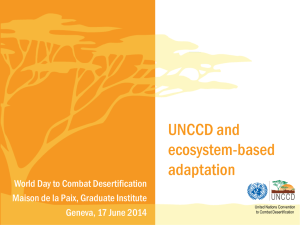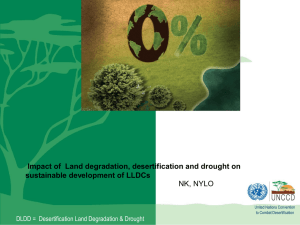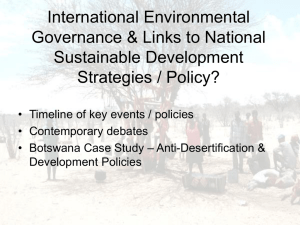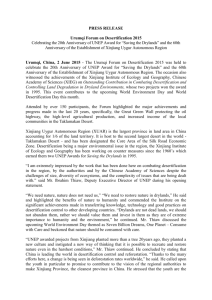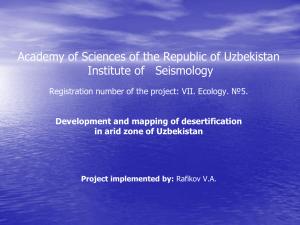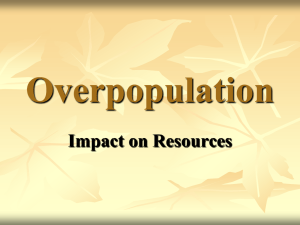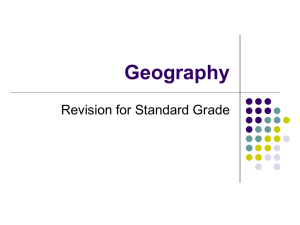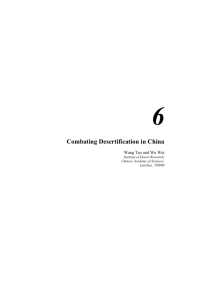Government Policy to Combat Desertification - UN
advertisement
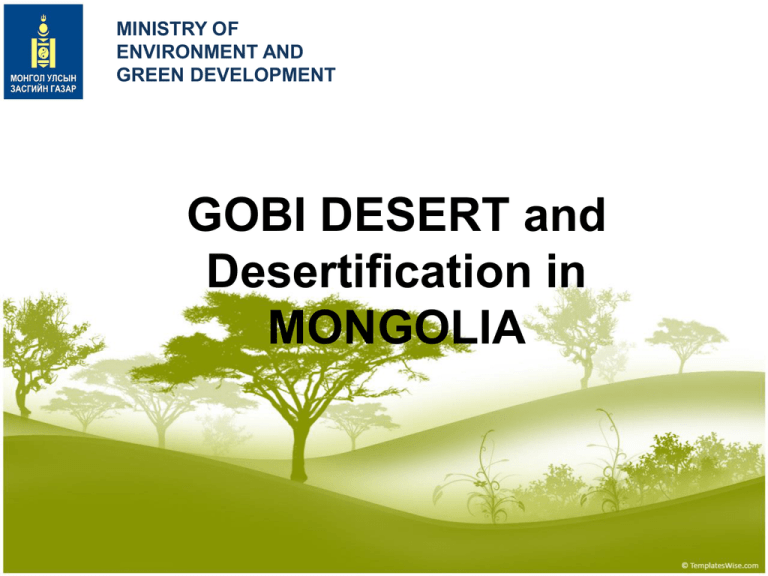
MINISTRY OF ENVIRONMENT AND GREEN DEVELOPMENT GOBI DESERT and Desertification in MONGOLIA Main natural ecosystem types Desertification-current status According to the statement of the UN Convention for Combating Desertification that approx.70% of the total landscape of Mongolia is under treat of desertification and land degradation. Causes of desertification • Main causes of intensifying desertification: • Natural factors • Man made causes Causes of desertification • Natural factors: • Changes on average air temperature (over past 70 years, air temperature has increased by 2.1C) and fluctuation and total amount of rainfall • Geographical location • Continental harsh climate Natural factors: The world average annual air temperature has increased by 0.5-0.6C over past 100 years. Ave. annual air temperature in Mongolia has increased by 1.66C 3.0 Temperature, 2.0 Winter temperature 3.61oC oC Spring temperature 1.5oC 1.0 0.0 Summer temperature 0.3oC -1.0 -2.0 2000 1995 1990 1985 1980 1975 1970 1965 1960 1955 1950 1945 1940 -3.0 Causes • Man made causes:of Desertification • Pastureland utilization /traditional way of pasture use has been neglected/ • Weak awareness on combating desertification among public • Exceeded current pasture capacity /pasture capacity has exceeded by 32.5% or by 16 million head of sheep. This is considered as the main cause of desertification/. • Modification in population of livestock /total amount of goat population has reached at 19.9 million and it occupies about 46% of the total population of livestock/. • Dried rivers and lakes due to mining and other human activities. • severely affected by desert – 5.0% • heavily affected by desertification– 18.0 % • moderately affected by desertification– 26.0% • lightly affected by desertification– 23.0% Central and settlement area of 145 sub-provinces in Gobi-steppe region is under sand movement. The researchers has found that the 50 percent of yellow dust sourced from South of Mongolia. Government policy on combating desertification MDG based Comprehensive National Development Policy National Forest Program National Water Program National Climate Change Policy “Green belt” National Program etc other 25 National Programs of the Government National Program on Combating Desertification Priority areas of National Program on Combating Desertification Priority area-1 • Strengthening institutional capacity Priority area-2 • Strengthening legislation and legal environment Priority area-3 • Enhancing scientific and technological knowledge Priority area-4 • Increasing public awareness and participation and supporting public education Priority area-5 • Support tangible measures at local level and increasing investment Constraints and issues • Legislation on combating desertification and economic situation is not meeting with current need and requirements. • Strengthening and improving cross-sectoral coordination and management. • Insufficient planning, utilization and regulation of agricultural land, which occupies over 70% of total landscape of Mongolia. • Lack of financial sources to combat desertification. • Weak capacity at local level to combat desertification Constraints and issues • Immature monitoring, evaluation, reaserach and information system of desertification. • Lack of Government incentive giving system to encourage active involvement and initiations from public, economic entities and local organizations in combating desertification • Insufficient of introducing innovation and modern technologies in restoration of abandoned areas and controlling sand movement. • Weak law enforcement by the Government and public for controlling illegal utilization of natural resources. • Law level of public ecological education. THANK YOU FOR YOUR ATTENTION
